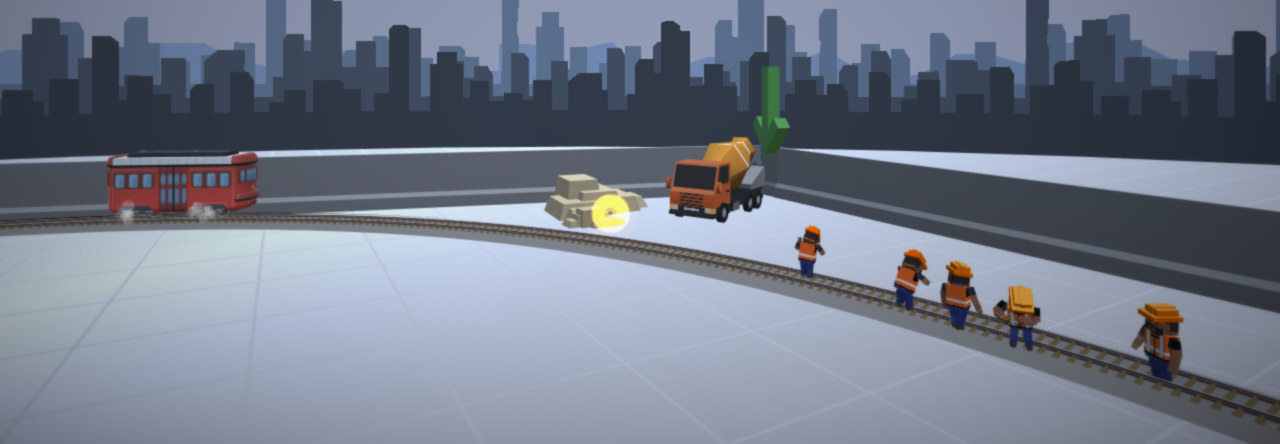It’s 2014 and if you’re into making games you may have made one of those resolution things related to making more games- I know I did!
I want to push myself and have thus opted to engage in the One Game a Month Challenge. The challenge is to release a game a month – not to create a brand new game every month. In this regard it’s different from the game jam model of starting fresh. So if you have games that are half finished (like me) then you can complete them and have that count. One of the nifty things about the challenge is that it’s like a game itself in which you can earn XP. Presently, I’m at level 4 for just filling out my profile.
One thing that I particularly like about the game a month challenge is that it’s not focussed on only video games. You can make board games (pro tip: Board Game Jam!) or games set in playgrounds! Whatever your heart desires.
It looks like many on Twitter have also thought that entering the self-imposed challenge is a good idea too. It’s never too late to join!
For those of you who are debating making games yourself, I implore you to take a look at the easy to use resources I’ve listed which include things from art to code to sound to more!
If all goes according to plan you too can be a indie game developer by the end of 2014! When in doubt, be sure to read how to be a happy indie game developer. Stay positive and remember that even a little time spent on making your game brings it that much closer to completion.
At the very least, you can help make 2014 not copy an awful year for technology that 2013 was.
Coding technology is complex
Speaking of technology, it obviously relies on code. Part of me wanting to attempt a game a month is to up my abilities in the obscure world of coding.
Coding is obviously something that needs to be learned and there are many place online to learn it. What I’m interested in is what people had to say about the process of learning.
Late last year Cecily Carver of DMG fame posted Things I Wish Someone Had Told Me When I Was Learning How to Code and it’s excellent! Here’s just one of many great points in the essay:
I’ve found that a big difference between new coders and experienced coders is faith: faith that things are going wrong for a logical and discoverable reason, faith that problems are fixable, faith that there is a way to accomplish the goal. The path from “not working” to “working” might not be obvious, but with patience you can usually find it.
In /r/LearnProgramming one person asked how self-taught developers learned how to code. The best response is applicable to anyone learning anything new:
You’re going to be frustrated, feel like you’re stupid, and get completely overwhelmed many times. The only difference between that person with that app/game on the store and you is that they didn’t give up.
Coding is (socially) complex!
It’s so often said in the tech community that coding will solve all problems and guarantee you a job. This is not the case! Indeed, over at Wired they have an article Pushing People to Code Will Widen the Gap Between Rich and Poor which further complicates this technopostivist worldview.
All that compiles is not gold. Coding is only a panacea in a world where merit is all it takes to succeed. In other words, a starkly different world from the one we actually live in where social structures, systemic biases, and luck may matter more.
On this “code solves all” ideology all I can really say about it is that it’s important to understand the core logic behind programming. For now, I’m going to continue to learn and make more games.
This turned from a short post into a long one that really should divided into multiple post for clarity. Oh well.
Time to go make games!
